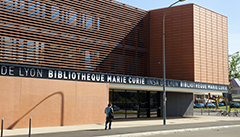
Sciences & Société
Soutenance de thèse : Majid BASEER
Multi-criteria decision making for sustainable engineering systems
Doctorant : Majid BASEER
Laboratoire INSA : CETHIL UMR5008
École doctorale : ED162 MEGA
The trend towards sustainability in the building sector is gaining momentum, driven by environmental regulations and societal will. Although new building projects adhere to established standards, they replace only 1-3% of existing buildings annually. Renovation projects often present challenges such as the presence of uncertain data, varied stakeholder’s interests, and complex sustainability factors. To address these limitations, this thesis aims to integrate uncertainty into the decision-making process. The thesis develops a multi-criteria decision-making (MCDM) framework based on sustainability factors encompassing economic, environmental, social, and technical aspects for energy renovation of existing buildings. In contrast to existing deterministic MCDM methods, this framework incorporates uncertain data, yielding more realistic outcomes. A review of established MCDM methods was conducted, followed by a SWOT analysis to select a suitable method for the research problem. The application of MCDM methods in building energy renovations was examined to understand sustainability factors comprehensively. To address uncertainty, probability distribution and Monte Carlo simulation are integrated with MCDM methods. These tools represent uncertainty, simulate decision-making, and handle ambiguity. The novel MCDM framework, probabilistic ELECTRE Tri, has been developed based on the ELECTRE Tri method, probability distribution, revised Simos method, and Monte Carlo simulation. This framework was specifically developed for the classification of scenarios for building energy renovation. It was validated through a case study of a social housing project in Lyon, France. The results from the probabilistic ELECTRE Tri method were compared with those from ELECTRE Tri, underscoring the significance of incorporating uncertainty in decision-making. The developed framework enhances transparency, adaptability, flexibility, and user understanding, benefiting stakeholders. It is generic and can improve the objectivity and consistency of decision- making. Additionally, it advances sustainable building renovation and aligns with global environmental and energy efficiency goals. Keywords: multi-criteria decision making, ELECTRE Tri, uncertainty, probability distribution, energy renovation, sustainability.
Información adicional
-
Salle 204/205, Bibliothèque Marie Cuire, INSA-Lyon (Villeurbanne)

